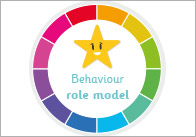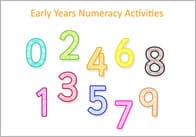Encouraging Reluctant Readers

Is your child a reluctant reader? Many children seem to have a strong dislike of reading. They develop a negative perception of it from a young age and this will often stay with them for the rest of their lives. Needless to say this is something that could have very damaging consequences. The ability to read is an essential skill that everyone needs in order to fulfil their potential. However, the written word is more than just simply a means of communicating and conveying information. Literature has a certain indefinable quality that can inspire and uplift in a rather unique way.
There are various methods that can be used to encourage children when reading, to improve their confidence and remove the negative association that they have built up. I’ve outlined a few below but if you know of other effective techniques please feel free to add a comment.
1. Read with your child
Schools use a wide range of techniques in encouraging their pupils to read, from individual reading time to group activities. The same could be done in your home. Playing games could help to make reading more appealing to your child, such as using different voices for each character or making a performance of the story.
2. Find suitable stories
There is a huge list of children’s literature available, which is growing every day. Your child is more likely to want to read if the genre of story is something they enjoy. Genres vary hugely, from fairy tales and myths to realistic fiction.
3. Don’t interrupt or fidget
It is important to maintain a relaxed atmosphere whilst your child is reading aloud. Make sure you are in a quiet location where you will not be disturbed and let your child read without interruption- it is likely that they will realise their mistakes by themselves. If not, try to correct them and encourage them in a constructive, positive and non-judgmental manner. You don’t necessarily want to make them read for long periods of time as your child could become agitated and could start to think of reading as a boring task that has to be completed rather than something they actually enjoy doing.
4. Find an alternative to storybooks
If your child does not seem to enjoy reading from storybooks, an alternative may be necessary in order to ensure that their reading skill improves. Alternatives could include comic books, magazines, information books or interactive stories on tablets, smart phones and computers. Be sure it is on a topic your child is interested in. Ultimately the goal is to impart a love of reading so you shouldn’t be too concerned that they are reading things you consider to be ‘worthy’.
Even things like catalogues, cereal boxes and packaging can also help to develop their skills.
Popular Teaching Resources
Stay Up To Date
Sign up for our newsletter and we’ll let you know when we create new early years resources.





